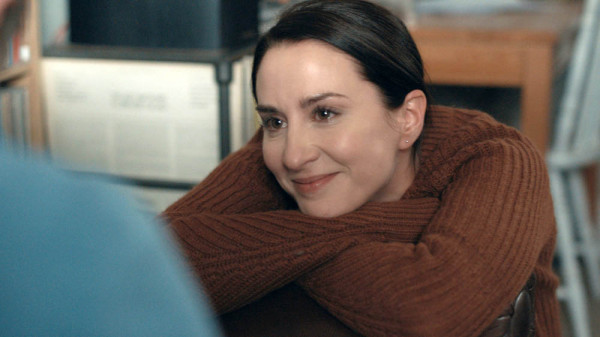Morven Christie (Grantchester) plays mum Alison in The A Word, BBC One’s new drama about a family whose youngest son is diagnosed with autism.
Adapted by Occupation writer Peter Bowker from the Israeli series by Prisoners of War creator Keren Margalit, the new six-part series is a funny and thought-provoking series about parenthood and childhood and what it’s like to have a child who doesn’t fit the mould.
> Like The A Word on Facebook.
The A Word is airing at 9pm on Tuesday nights on BBC One. Here Morven Christie chats about the show…
What first drew you to the script for The A Word and to the role of Alison?
“I like stories that are about people, about relationships. And that’s what this is. It’s a family story. And Pete’s really great at writing that kind of multi-generational, just the truth of being in a relationship, whatever that relationship is, I think. So that’s sort of what drew me to the story.
“And I think Alison… there’s not a huge amount of variation in terms of female characters, just in the writing of female characters. And I think what was exciting about Alison is that she’s under a lot of pressure and she’s dealing with a lot of challenges and she’s not always dealing with them in the right way. And she’s dealing with them in ways that maybe other characters have an opinion about or a judgement on.
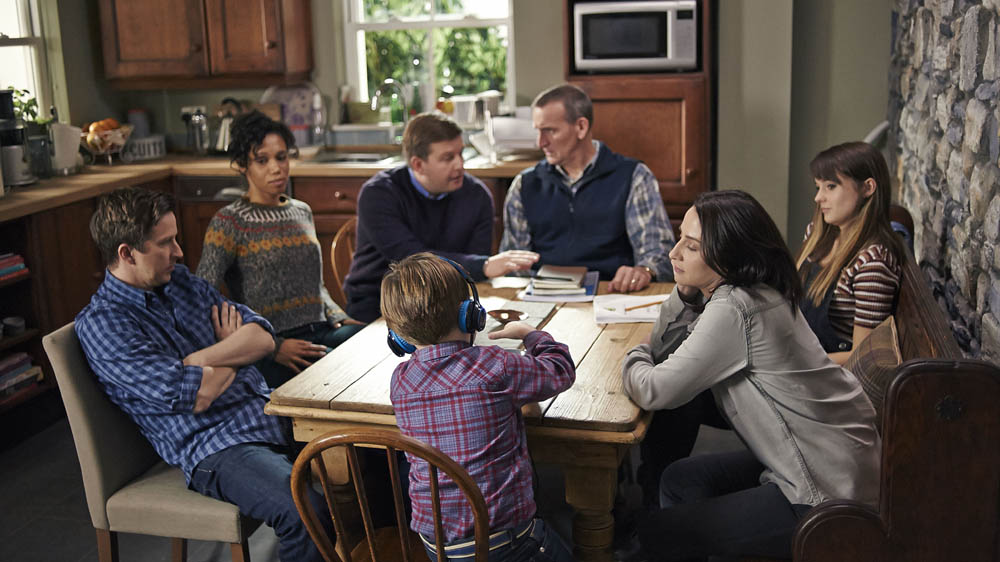
“And I’m sure some members of the audience will too. But we’re exploring that. So I think, for me, it’s like a character who isn’t written to please. Isn’t written as a type or a stereotype, but is lots and lots of different layers. It’s a whole character. It’s a whole person. And that’s a proper gift as an actress. I think there’s not a lot of it around. So yes, I kind of lunged at it.”
What challenges has playing Alison brought to you as an actress?
“She’s a tough character. And she’s not always easy to like. And I think that, as an actor, that’s something that I’m always drawn to, much more interested in that. Just as a human being, because I think all of us go through times… all of us, at times, are difficult to like, I think, as people. And that’s just part of being a human.
“You have parts of your personality that maybe aren’t as nice as others. And so although that’s something I’m drawn to within characters, it’s sometimes quite challenging to play that scene on scene on scene, because you start to judge yourself. You start to judge the character. You start to… so that can be tricky.
“And I think just the extremity of the circumstances that Alison’s going through means that just on a day to day basis, kind of shooting one scene after another, sometimes by the end of the day it’s just emotionally quite draining. And that’s been the biggest challenge about it. But that’s also what I love and what I want.
“So yes, it’s kind of both the gift and the… you know, it’s the great part about it and the hard part about it. But it’s definitely… I would say she’s the most challenging character I’ve played. And I absolutely love her. I think she’s fierce and committed, sort of like a tiger. And yes, that’s not always easy to play. It gets quite relentless. But it’s also just like a wonderful gift.”
How much did you know about the autism spectrum before you started work on The A Word?
“I didn’t know a huge amount about the autism spectrum. I think we all think we know things. I think there’s assumptions that we all have about what autism is, and what it looks like, and how people are when they’re on the autism spectrum, but I don’t think there’s very much understanding unless you actually have direct contact with somebody who’s experiencing these kinds of things.
“The thing that’s been a revelation to me is the spectrum itself, the scale of that. The breadth of that. And that no two people on the spectrum sit at the same point. So I mean, I have friends who… I have two friends, specifically, who have children on the spectrum. Both wildly different from each other.
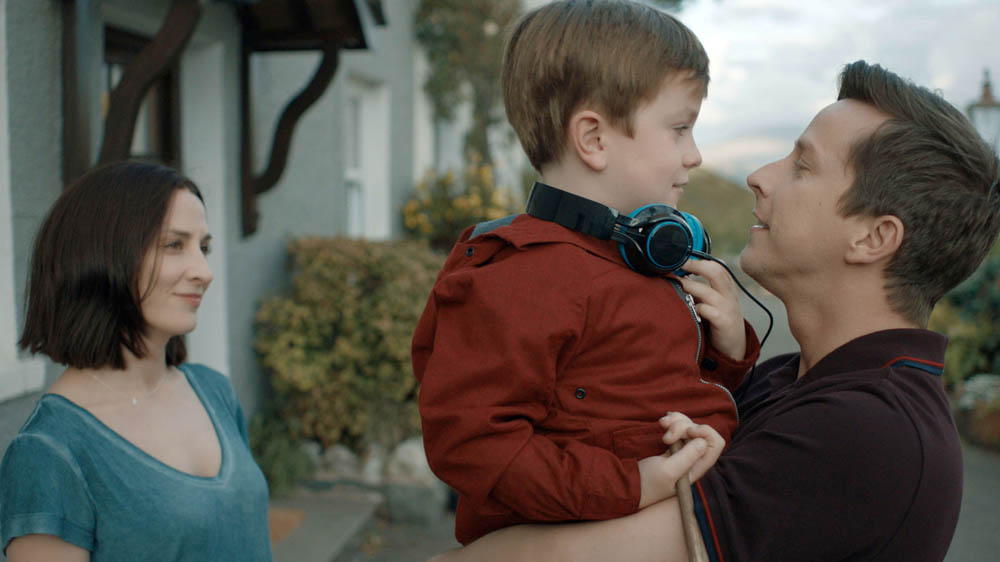
“So there is no similarity, although there’s possibly similarities in the roots of the problems that they have, the actual manifestations of the problems are very different. So I think that’s been the biggest revelation to me is just how many things fall within that spectrum. How broad that is.
“But yes, everything that I’ve learned about the spectrum I’ve learned really on… through this, through researching this. Which actually has been quite interesting because Alison and Paul, as a couple, don’t know anything about it. So I’ve been sort of discovering things about it as she has, in a way, and it’s been a really interesting way to kind of… I’m glad I didn’t know more than her when I began this process because it’s sort of helped me, I think, with what she’s going through. But yes, it’s fascinating.
“I think there’s a lot of clearly much more of an understanding about the spectrum and what it is, and a lot more knowledge about it now. This is not, in any way, like an issue-led drama. It’s not… this is not a show about autism. It’s a show about a family. And I think sort of discovering their challenges in a sort of real-time way has been a really helpful thing.
“I think there’s something quite powerful about being able to sit in the office when we did that scene and receive that information like a slap in the face. Like I have no idea what it means. And yes, it’s an extra sort of layer of getting inside, understanding what the characters are actually going through in that moment. It was quite helpful, I think.”
How have you found working with Max Vento, who plays Joe?
“Working with Max is hilarious and challenging and infuriating and fun and silly. And he’s a really unique little character. He’s so far away from Joe, the character that he’s playing.
“Max is so engaged and so energetic and bubbly and wild, and soft and squishy and all those things. And Joe is obviously quite detached, quite removed from things.
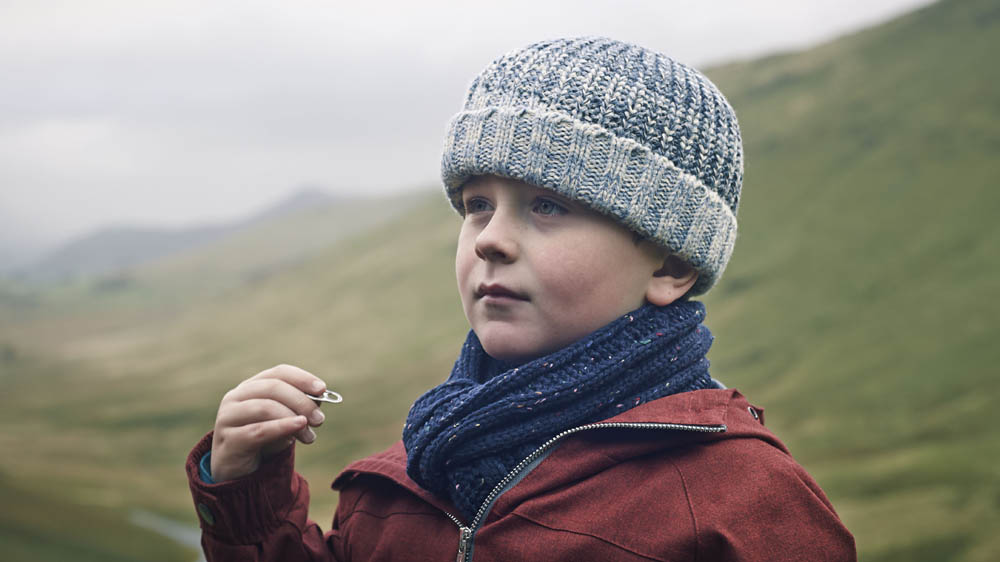
“And I think that yes, it’s been fascinating watching how they’ve managed to capture those qualities from him. He’s great to hang out with. I love Max. We’ve been bowling. We’ve had a good time. He’s great. He’s a cool kid. It’s tough for him, though. This is a really… I think I remember when I first read the scripts thinking, this is a lot to ask of a five or six year old child. This is going to be really challenging. How will they even find a kid that can believably…
“I can’t imagine them having found anyone other than Max, to be honest. I’m not sure that there were or could have been a huge number of choices. He’s very unique. He’s like a little man. But also a kid, so yes, he’s a dude. He’s loud though.”
Lee Ingleby plays Alison’s husband, Paul. What has been your favourite scene with him so far?
“I love working with Lee. I think it would be very difficult for me to pick a particular scene. We’ve had so many. I think the ones where it’s one on one, and Bowker writes these amazing long scenes that you very rarely get in television.
“They’re like theatre scenes. They go on for three pages and they have all these twists and turns in them. And playing those one on one scenes with Lee is just a joy. Yes, I don’t think I could pick one scene or one moment. I think he’s just a joy to work with. I’m really thankful that I’ve got Lee as my telly husband.”
How important is the Lake District setting to the story?
“Yes, this family live near the Lake District, and I think that having spent some time there, it is brilliant, actually, because we shot the first three weeks in the Lake District. We did all the exterior stuff first. So we got a real sense of the environment they live in. I think for any character in any story, that’s key. And the Lakes is so specific. It’s so kind of just that space, that sense of space, is a huge… feeds into who you are, a huge amount, I think.
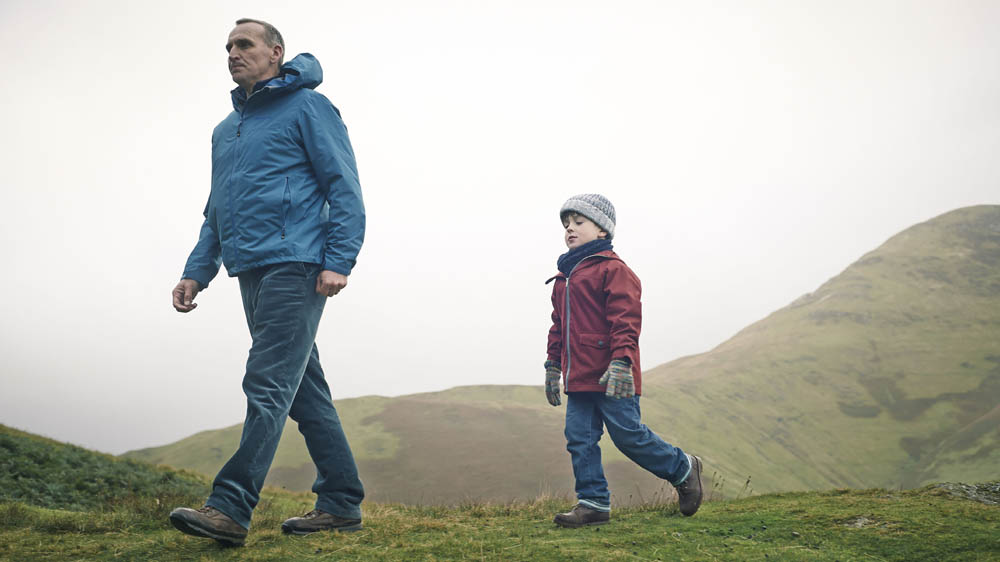
“It’s massively important for the character of Joe, that wilderness, that space. And I think for Alison and Paul, you know, Alison’s grown up there. She’s lived there her whole life. She knows everybody in that town. And they all know her. And that has a huge impact on the way that she receives the information that she receives and how she handles it.
“And I think yes, it’s an extraordinarily beautiful place, but it’s how you exist within a small community within somewhere so vast. Yes, I think… and yes, I do just find landscape a really big part of how characters are. You know, country people are very different from city people. And Alison’s got a little business, a little diner that’s at the bottom of a fell, in a valley at the bottom of a fell, in the mud. And that’s very different from working in a sort of cosmopolitan coffee shop. It’s just a very different life that they have, I think.
“And there’s things like the relationship with the outdoors. Joe’s very into being outside. He goes for these walks outside. And Alison and Paul, although they have a kind of… they’re aware this is probably not great, but there’s a safety to him being able to walk out. Everybody knows who he is. He knows who everybody is. It’s not like when your kid goes out to play and you live in London, for example. It’s a completely different sort of community. I think that’s vital to the story.
“And just to the sense, for Alison, I think, to the sense that there’s no anonymity there. Everybody knows who everybody is and I think that’s really important to how… I think that explains a lot of how she reacts to discovering that Joe’s on the spectrum.
What have been the challenges of filming in the Lakes so far?
“Along with all the beauty and the incredible landscape, there are things that… and the fact that there aren’t many people there, very many buildings there, very many… so again, it’s that thing where the toughest things are also what its strength is, you know. The toughest thing about filming in the Lakes are it takes quite a long time to get anywhere.
“A lot of the locations are miles and miles and miles apart. You have to drive all the way around lakes and all the way around fells to get to them. So that’s really challenging. And the weather there can be really extreme, as we know at the moment. It’s flooding and it’s in a pretty bad state at the moment.
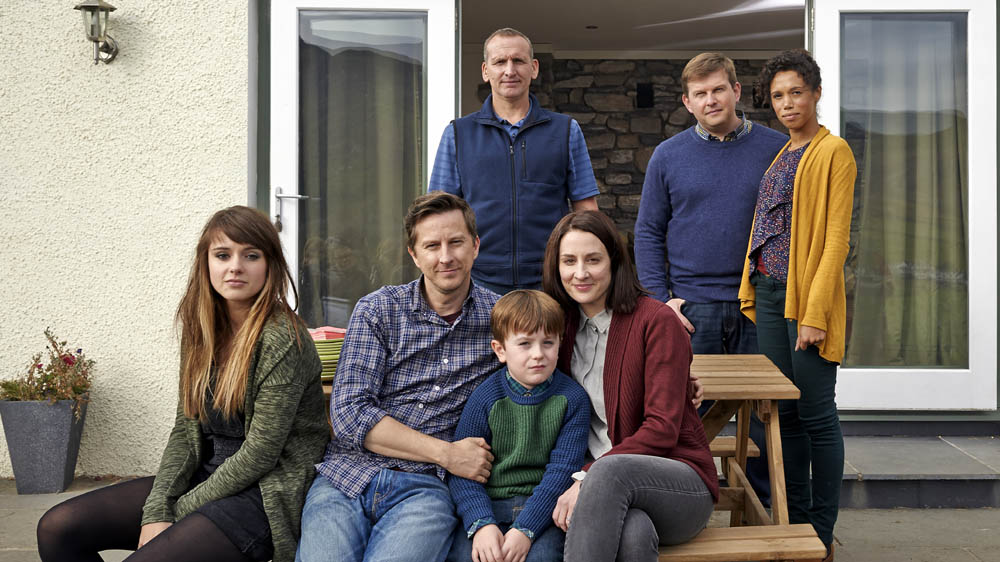
“But even when we were there back in October, we had one week where… the first week where it was ridiculously warm. It was glorious sunshine. And then two weeks after that, where it was very wet and it did get really cold, really windy. And that’s fine. Actually on camera it really adds to the story.
“It’s a great thing. But it just logistically causes a lot of problems sometimes when you’re filming. So the crew get very wet and very cold. And it’s very muddy so it’s difficult to get equipment around. And if it’s very windy, that can be very difficult for sound. So it’s just logistical things like that that I think are challenging. And some of the drives between locations where I can’t imagine what they’ll be like in January when there’s snow and ice, potentially flooding. Who knows? But I think we definitely need some four-wheel drives the next time we hit the Lakes.”
Is this your first experience collaborating with writer, Peter Bowker?
“I’ve actually done one of Pete’s dramas before. I did a piece of his called From There to Here, which was, I think three years ago, two years ago, three years ago. Which was set in Manchester. And it was about… it was again, multi-generational family story. So I think it’s what he does brilliantly. And he also has this quite unique… I think I would recognise Pete’s dialogue.
“If I saw something on television and didn’t know that Pete had written it, I think I would recognise his dialogue immediately, because I don’t think that there’s anybody else that can quite so truthfully bounce humour up against tragedy. He does it brilliantly. And I think that’s a really honest depiction of life.
“There’s always humour and absurdity within the most tragic situations, within the most extreme circumstances. There are always these comic moments. But without ever going into being obviously comedic. I think it’s just something that he has an incredible talent for.
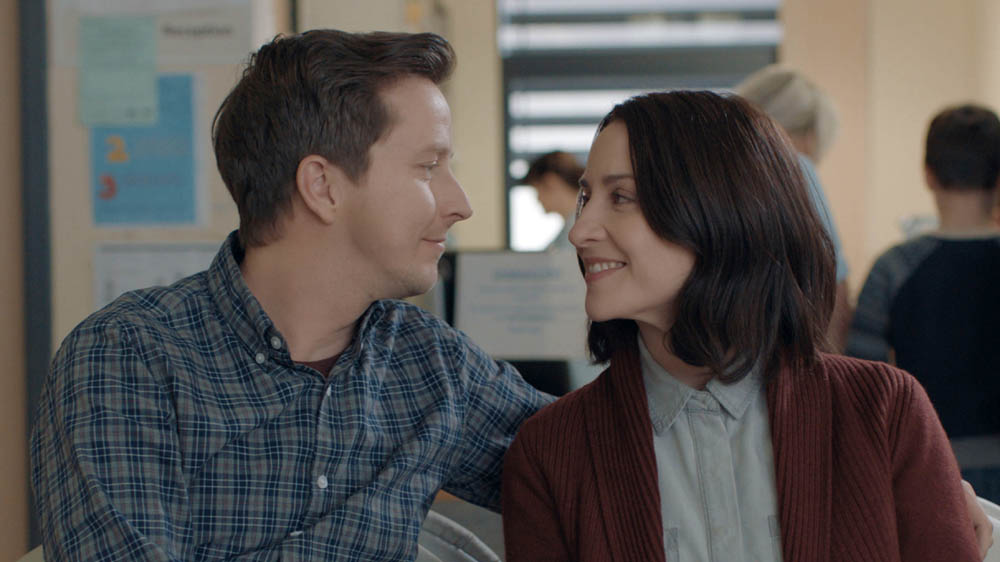
“I think he’s got a really political mind. A really sharp understanding of humans and how they interact with each other. A great ear. Very observant about these relationships between men and women, relationships between parents and children, grandparents and grandchildren. So yes, I’ve always been a really big fan of his work. But I think this, to me, is one of the reasons why when I first got the scripts through, because I didn’t think I was going to be available. I was doing something else, and my agent said, oh it clashes. You’re not going to be able to do it anyway.
“And I said, can I read it anyway? I just want to read. And I think it’s the best thing Pete’s written and I’ve always been a fan of his work. So this one, for me is just… it’s everything he does well, at its best. Although Marvellous was amazing as well. Yes, no, I think this was my favourite of everything he’s written.”
A central theme of The A Word is communication. What would you hope the drama communicates to audiences both in the UK and internationally?
“I hope that audiences love the show, because it’s about human beings. Regardless of the specific issue that this family are dealing with, it’s about this family… a family, and how they’re dealing with each other. And that’s pretty universal. I think what I hope is that people recognise themselves in the characters. That’s what I always hope, I think. I think that’s what storytelling is for, is to give… it’s for recognition. It’s to go, oh yes, see, I’m not alone. It’s that.
“So I think that’s what I hope for from this. And I hope for it very much for people who are either going through these kinds of issues with their own children or just for people who… just for human beings in general. I don’t think it’s a limited… to me it doesn’t have a limited audience.
“I think everybody that I know could look at these characters, at least one of these characters and recognise parts of themselves. I think that’s a great skill in the writing. And a great gift. And I really hope that that’s what happens with it.”
Why do you think viewers will respond to The A Word?
“I think if I was watching this show, I think that I would respond to the sort of nudity of the truth in it. I think Pete said something really fascinating to me, about Alison and Paul, about one particular scene, but it kind of… it’s a brilliant observation. He said, what do people who are emotionally articulate and who think that they’re honest with each other, how do they hide? Where do they lie, and what happens when they’re not?
“And for me, if I was an audience member, that’s what I would respond to the most in this story is just that kind of… the starkness of the truth of that. That I recognise parts of myself, and parts of just.. of humanity, in these kind of conversations that these characters have. And I think people will really respond to that.
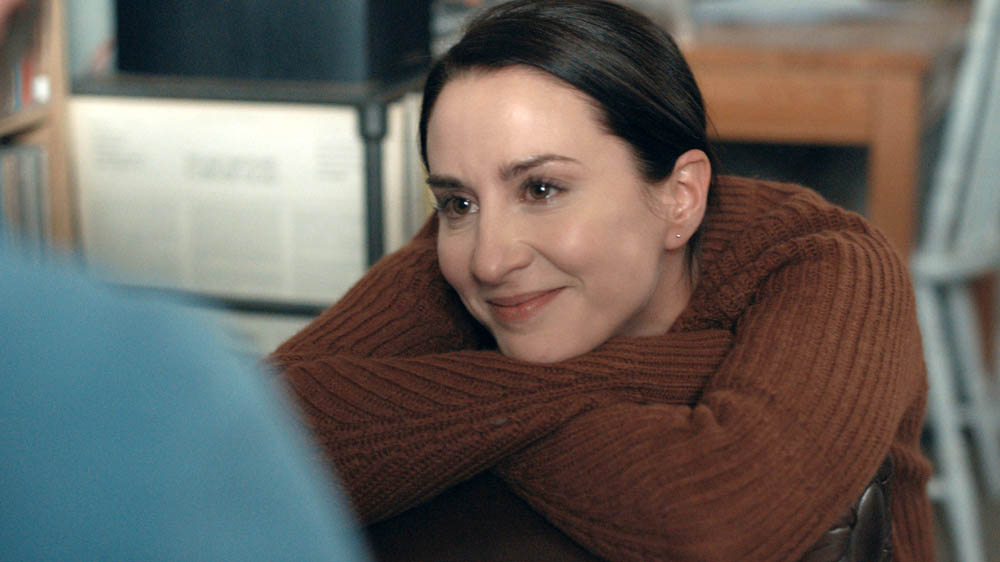
“I also think that he’s written Joe so beautifully, and Max is playing Joe so beautifully, they’ve been genius in the way that they’ve shot him, and the parts of Max that they’ve used for Joe and I think people will really respond to that.
“There is so much joy in this show. It’s serious and it’s heavy, but it’s also joyful and hopeful and funny. And I think I loved the scripts as much as I did because I’m an audience member as well as an actor. And so I have a lot of faith that it will be received well. A lot of hope that it will be received well, yes.”

